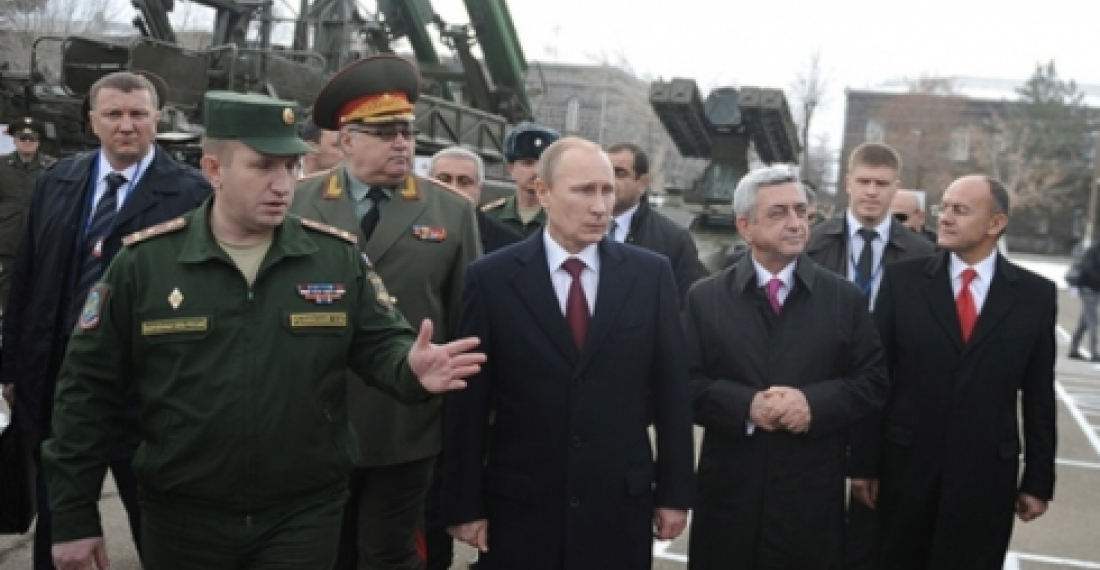Updated at 15.15 GMT with quote from President Putin
Russian President Vladimir Putin has said in Yerevan that Russia "will never leave" the "Transcaucasus". According to the website of the Russian President, Putin stated on his arrival in Armenia this morning that
"As for the Trans-Caucasus region, Russia will never leave this region. On the contrary, we will make our place here even stronger. We will strengthen our position here, drawing on the best of what our forebears left us and with the support of good relations with all countries in the region, including Armenia."
Putin's visit is intended as a sign of support to Armenian leader Serzh Sargsyan in the aftermath of the latter's decision to abandon plans for Armenia to sign an Association Agreement with the European Union.
The visit has coincided with dramatic events in Kiev where large demonstrations are taking place against a similar decision by the Ukrainian Government.
Putin arrived in Armenia's second city Gyumri, where a large Russian military base is located. Accompanied by President Serzh Sargsyan Putin inspected troops and equipment at the base before heading for Yerevan. During his visit to Armenia Putin is accompanied by a large delegation including Ministers, Governors of Russian regions and buisnessmen.Speaking at a Russian-Armenia business forum, . Putin told the forum that the Armenian decision to join the Customs Union "was the sovereign choice of the Armenian people and Armenian leadership. Russia will do its best support this area of cooperation with Armenia. Practical preparations for Armenia's membership to Customs Union started and a large package of legal and administrative issues is to be agreed upon", said the Russian President. -
In Yerevan some people protested against Putin's visit. Police arrested around one hundred young pro European activists during the morning in an attempt to prevent anti Putin protests.
More on Putin's visit to Armenia on commonspace.eu throughout the day.
source: commonspace.eu with agencies
photo: President Putin accompanied by President Serzh Sargsyan inspects equipment at the large Russian military base in Gyumri shortly after his arrival in Armenia on Monday (picture courtesy of the Press office of the President of Armenia).







